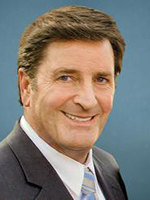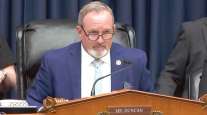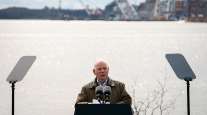Senior Reporter
Research Advocacy Group Identifies Nine ‘Highway Boondoggles’

[Stay on top of transportation news: Get TTNews in your inbox.]
A $2.2 billion proposal to enhance freight connectivity along Interstate 81 in Virginia was among the nine projects deemed wasteful for taxpayers in a recent report by the U.S. Public Interest Research Group, whose authors encourage enhancing transit options.
In “Highway Boondoggles,” unveiled June 18, PIRG and the Frontier Group argue the proposed widening of the major freight corridor that runs 325 miles through Virginia could lead to more air and water pollution. The project also is likely to lead to greater congestion if trucks seek residential roads to avoid any tolls.
“Simply expanding the highway will not solve the corridor’s problems,” according to the report. “Better options also exist for increasing freight capacity, including improved freight rail service.”
Highway projects waste public money, saddle states with debt, & fail to address real problems with our transportation system. Check out our 5th annual #HighwayBoondoggles report with @uspirg. Did your local highway project make the Boondoggles list? https://t.co/tI03QwmX1x pic.twitter.com/D0FZwNcSJQ — Frontier Group (@FrontierGroupUS) June 18, 2019
State officials explained commerce and access to metropolitan regions and academic institutions are key reasons for pursuing the project. Freight worth more than $300 billion flows through the corridor annually, according to the state Department of Transportation.
Other projects highlighted in PIRG’s report include a $2.2 billion highway expansion outside of Raleigh, N.C., an $8 billion expansion of a Los Angeles County freeway, the $6 billion North Houston Highway Improvement Project, a $1.4 billion project on I-75 in Michigan, a $4 billion tollway widening in Illinois, an $802 million project in Miami, the $300 million widening of I-83 in Pennsylvania and a $450 million widening of I-5 in Oregon.
“Sometimes it’s the infrastructure we don’t build that makes all the difference,” Gideon Weissman of Frontier Group, the report’s co-author, said. “Cities from Dallas to Tampa to Milwaukee have discovered that ditching boondoggle highway projects has opened up new opportunities to build stronger, cleaner and more fiscally sustainable communities.”
“If we’re smarter about how we spend our transportation dollars and focus instead on building a 21st-century transportation system, America can have less pollution, less gridlock and more public transit,” added Sam Landenwitsch, senior vice president for the Public Interest Network, of which U.S. PIRG Education Fund is a member.
Before considering massive highway expansion projects, the report recommended policymakers invest in public transportation, require full cost-benefit comparisons for projects and prioritize projects designed to minimize vehicle-miles traveled.
Through five reports chronicling so-called boondoggles, the authors have reviewed 50 projects nationwide. They examined environmental impact statements as well as traffic studies.
PIRG Boondoggles Report by on Scribd
“It’s clear, even after profiling 50 boondoggles over five editions of this report, that America still has a misplaced appetite for costly and disruptive highway expansion projects,” Matt Casale, U.S. PIRG Education Fund’s transportation campaign director, said. “To solve our transportation problems — from potholes to pollution to global warming — we need to put outdated highway projects in our rearview mirror.”
At the federal level, lawmakers continue to scramble to ensure sustainable funding for the country’s surface transportation system. An account that relies on revenue from fuel taxes to assist states with construction and maintenance projects will approach insolvency in about two years.
Meanwhile, several lawmakers have proposed boosting funding for certain projects.

Garamendi
U.S. Rep. John Garamendi (D-Calif.) recently introduced legislation that would provide up to six years for agencies to advance projects funded through the Federal Highway Administration’s emergency relief program. Currently, states are required to apply for such relief funding within two calendar years from the time of the disaster.
“Californians are facing increasingly frequent and severe floods and wildfires due to climate change,” Garamendi, a member of the Transportation and Infrastructure Committee, said on June 11. “They deserve nothing less than the full-throated support of their federal government, and that’s exactly what our bill ensures.”




